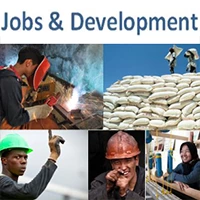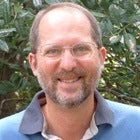Gary Fields is a Professor of Economics at Cornell University.
David Margolis is Research Director, Centre National de la Recherche Scientifique, University of Paris.
Tim Gindling is a Professor of Economics at University of Maryland.
More than half of all workers in the developing world are self-employed, mainly in agriculture. But unlike in the developed world, self-employment is typically because of constraints (like a lack of available wage jobs) – not by choice. In other words, it’s a question of survival. These people are too poor to remain unemployed and earn nothing, especially in the absence of unemployment insurance and other social protection programs.
In this blog, we share the thoughts of three experts: Gary Fields (Professor of Economics, Cornell University), David Margolis (Research Director, Centre National de la Recherche Scientifique, University of Paris), and Tim Gindling, (Professor of Economics, University of Maryland). They discuss estimates of the size of the self-employed group in developing countries. They explore the notions of “chosen versus constrained,” “vocational versus transformational,” and “entrepreneurship.” They also examine the links between jobs, unemployment, poverty, and development. In our next blog, they will weigh policy alternatives.






Join the Conversation